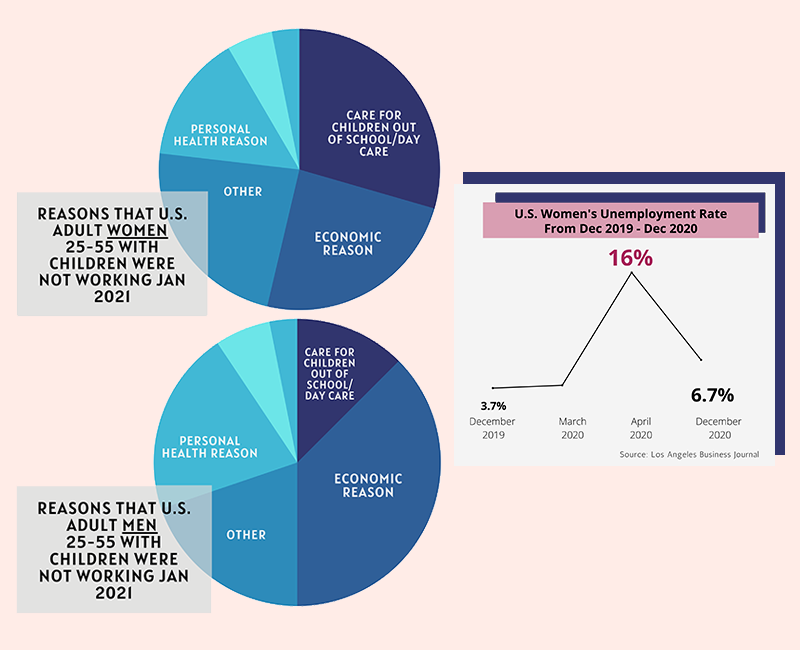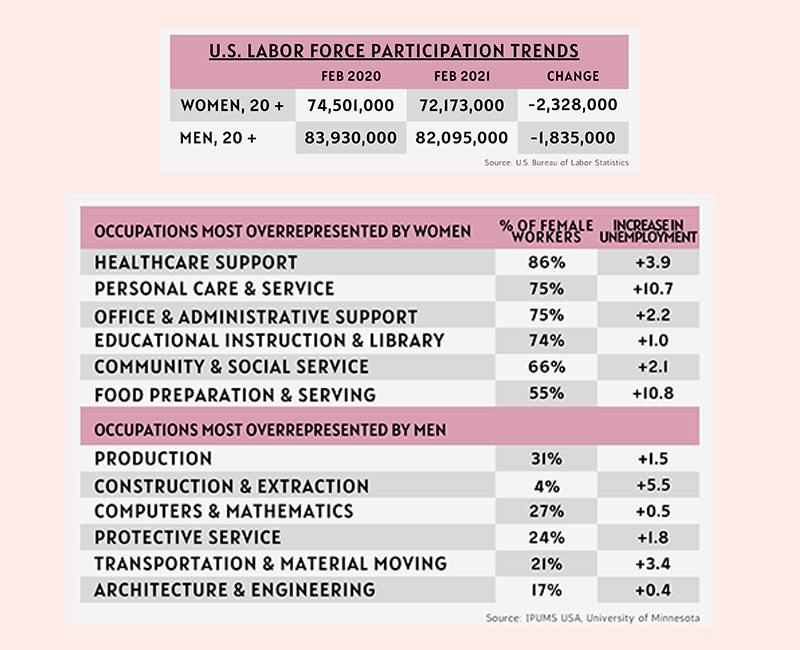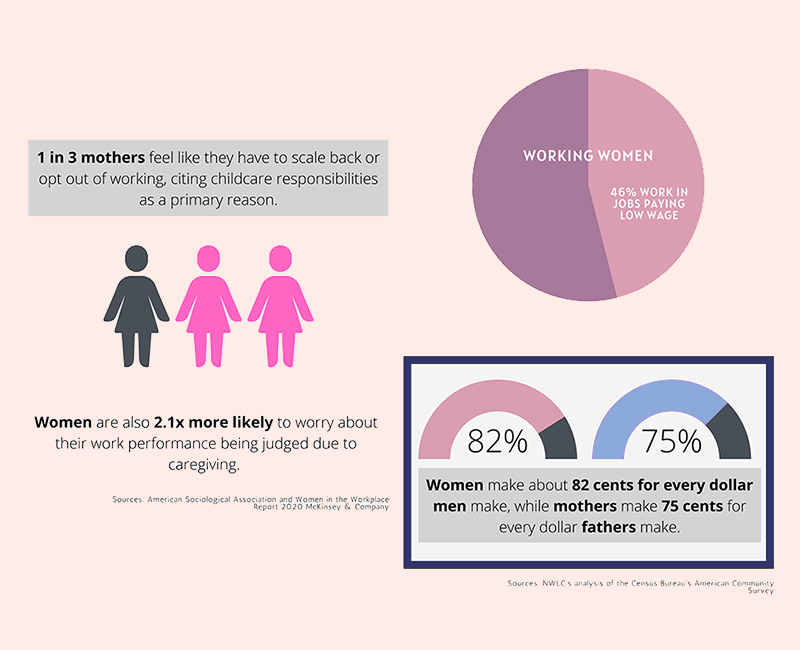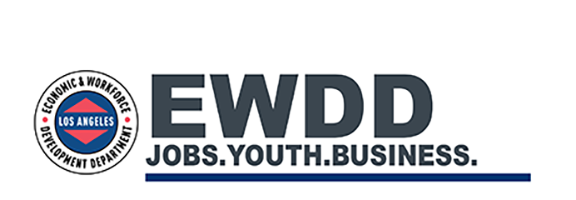The COVID-19 pandemic highlighted gender inequities in the workforce, and underscored the challenges women face in balancing family and workplace responsibilities. As the pandemic eases, the City of Los Angeles is calling on businesses to incorporate inclusive, flexible and supportive workplace policies that allow employees the opportunity to address caretaking responsibilities.
Investing and training employees costs money. Creating a workplace environment that acknowledges the impact of caretaking responsibilities builds company loyalty. By instituting policies that respect and welcome back employees that take time off to take care of their families, your company will profit and enhance its reputation as one of the best places to work in Los Angeles.
SUPPORTING MOMS IS GOOD FOR BUSINESS, WHICH IS GOOD FOR EVERYONE
Investing and training employees costs money. Creating a workplace environment that acknowledges the impact of caretaking responsibilities builds company loyalty. By instituting policies that respect and welcome back employees that take time off to take care of their families, your company will profit and enhance its reputation as one of the best places to work in Los Angeles.

health and maternity paid time off, and better mental health support
health and maternity paid time off, and better mental health support

flexible work hours and personal schedule control
flexible work hours and personal schedule control

more child care support
more child care support

workplace policies that promote gender
equality
workplace policies that promote gender equality

fair pay and a living wage
fair pay and a living wage

on-ramps back into the workforce
on-ramps back into the workforce
Moms Need More Support
Unemployment in the pandemic has fallen disproportionately on women of color, with many in the service industry.












